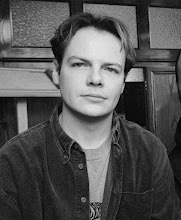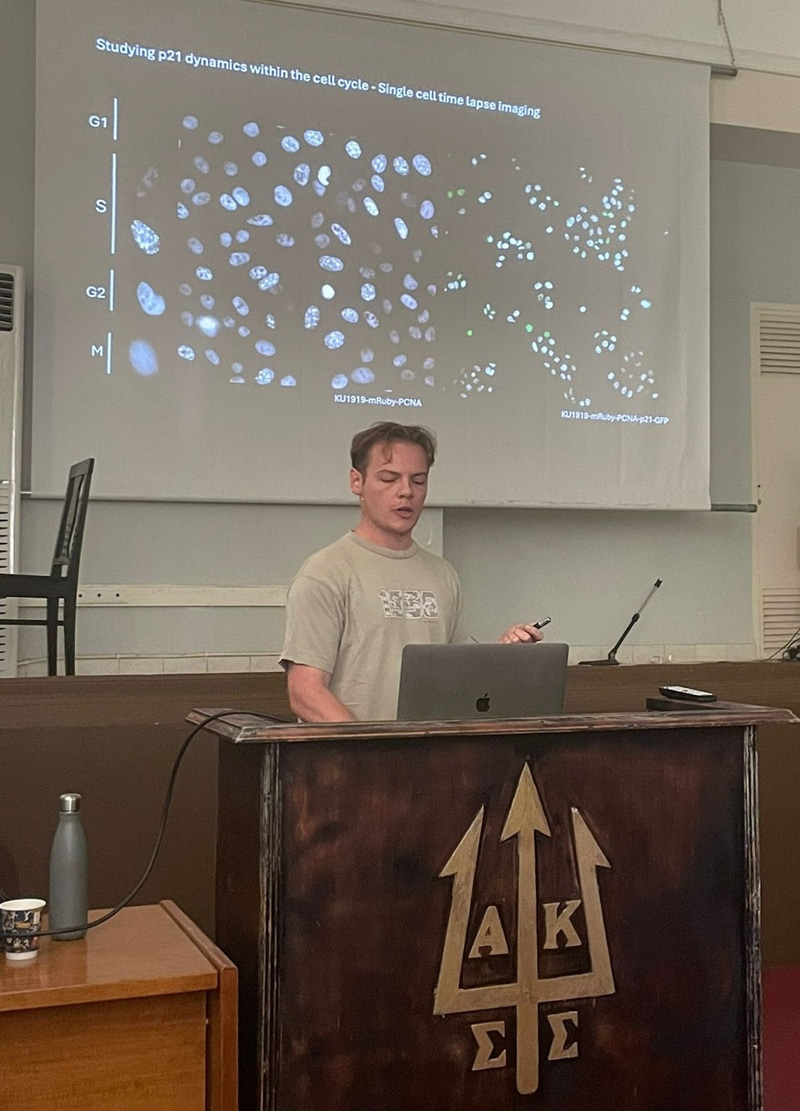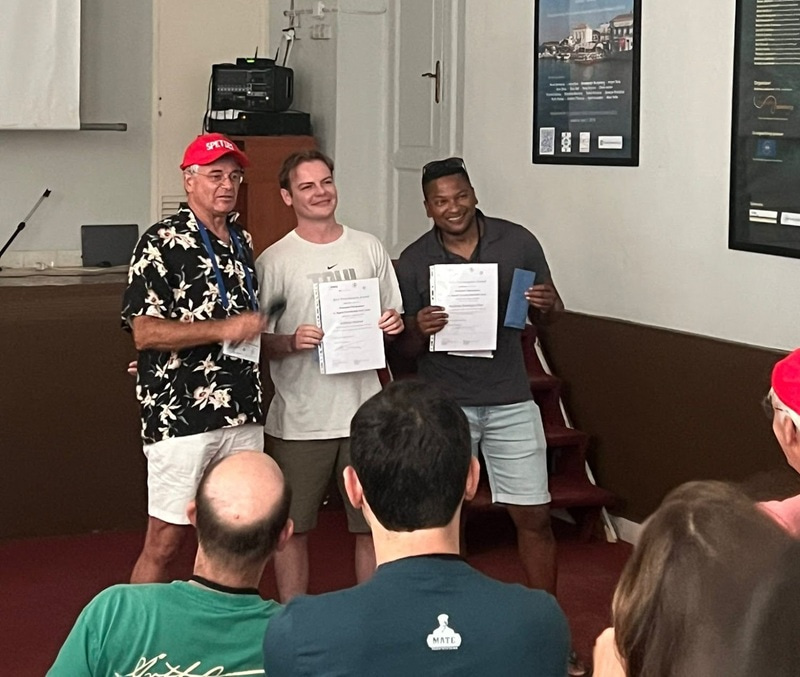Meet William Weston: FEBS Advanced Courses 60th Anniversary Awardee

Our interviewee is William Weston, a 2nd year PhD Student working at the MRC Laboratory of Medical Science, Imperial College London, United Kingdom. William received a FEBS 60th Anniversary Award for his1st place prize to the best presentation at the Joint FEBS/EMBO Lecture Course 'Molecular mechanisms in signal transduction and cancer' (18–26 August 2024) in Spetses, Greece.
Tell us about your research topic/work. What project(s) are you working on? What is the aim of your study?
Our group is interested in how cells regulate cell cycle entry/exit, and how this goes wrong in cancer. My project focuses on loss-of-function mutations in the CDK/cell cycle repressor p21, which occur exclusively in bladder cancer (10-15% of cases) and no other tissues. We believe there is a tissue-specific role for p21 in the bladder, the disruption of which contributes to bladder cancer progression. I am now working to characterise this tissue-specific role of p21, and to observe the effect of tumour-specific mutations on bladder cancers response to chemotherapy. Through this, I hope to identify therapeutic opportunities or stratify treatment options for bladder cancer patients.

Photo credits: personal archive
Who or what inspired you to choose a career in science?
Like a lot of people, I was first interested in science from watching David Attenborough documentaries on the BBC, or reading books by Richard Dawkins and Jane Goodall. It was only after a year of university that my interests changed to biomedical research. Since then I have been lucky to work for great PIs who have inspired me to pursue a longer career in research.

How did you learn about the FEBS Advanced Course? Why did you choose this course to attend?
My supervisor and older PhD students in the lab had attended the same course in previous years, and had had an excellent experience so made a strong recommendation. The setting was a huge draw, of course, but the subject matter was perfect for my interests and the chance to network with a large group of students was really appealing to me.
How does attending this course influence your present and future plans? What are the benefits of attending the FEBS Advanced Course?
The FEBS-EMBO course has given me a huge boost in confidence and focus when it comes to my future in science. Previously I had been unsure about the next steps after my PhD, toying with academia or industry. However, meeting so many fun and enthusiastic young scientists who share my interests was a nice reminder of how enjoyable science in academia can be. I also found talking with the speakers across the week invaluable for getting advice on career progression and work-life balance. Hearing from successful group leaders about their experiences made it seem much more manageable and appealing to stay in academia, rather than just following the money to industry. I’m now planning to push for a post-doctoral position, provided I can complete my PhD!
What work were you presenting at the FEBS Advanced Course?
I presented my work on unique p21 alterations in bladder cancer, showing data from single-cell time-lapse imaging of urothelial cells co-expressing fluorescent reporters.
How does it feel to receive a FEBS 60th Anniversary Award at a FEBS Advanced course as recognition for your work? How do you see this Award influencing your career and future?
I was thrilled to receive this presentation award from FEBS. I'm usually hypercritical of my work and feel I am making slow progress, so it was lovely to get some recognition for what I've been working on. Hopefully, this will help me feel less nervous next time I get to present to a big crowd.

What is your advice to aspiring students/scientists?
My advice would be to choose a role with a supportive and available supervisor during your early career (undergrad/PhD). Of course, the research topic is important and must interest you, but a PI can make or break your experience of science!
Where do you envision the future of your career?
I would love to lead my own group in the future. I enjoy discussing and communicating my science, so I hope to use this for my own team one day.
For more information about the FEBS Advanced Courses programme visit the FEBS website.
Photo by MARIOLA GROBELSKA on Unsplash.





Join the FEBS Network today
Joining the FEBS Network’s molecular life sciences community enables you to access special content on the site, present your profile, 'follow' contributors, 'comment' on and 'like' content, post your own content, and set up a tailored email digest for updates.